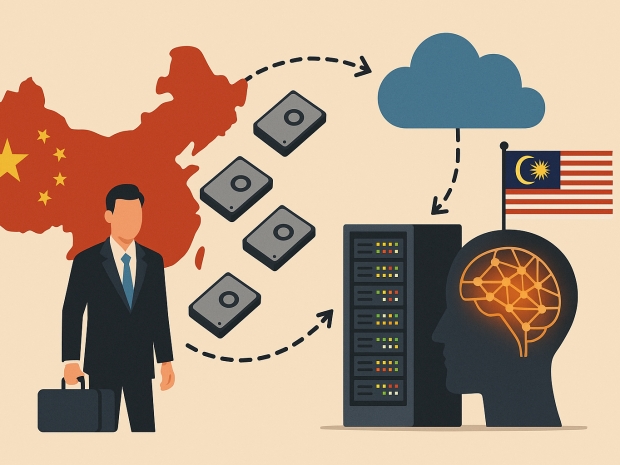The workaround allows them to harness restricted American AI tech without importing a single chip. Instead, trained models are flown back into China, completely neutering Washington’s attempts to keep cutting-edge hardware out of Beijing’s hands.
One such operation unfolded in March when engineers from a Chinese AI outfit landed in Malaysia carrying suitcases packed with 80 terabytes of data.
Since 2022, Washington has tried to stop Chinese access to advanced AI chips, citing national security. That included blocking exports of Nvidia’s top-tier silicon. But with US gear still legally available in places like Malaysia and Singapore, Chinese developers have started sending their data abroad to train models remotely.
Fformer US Commerce Department export boss Thea Kendler told the Wall Street Journal that the practice of Chinese firms remotely accessing Nvidia hardware was known about.
The playbook often involves a mess of shell companies and local fronts. In this case, the Chinese developer previously rented time from a Malaysian data centre via a Singapore subsidiary. As Nvidia tightened audits, the Malaysians insisted on a locally registered front, and the Chinese firm obliged, setting up a Kuala Lumpur company with Malaysian directors and an offshore parent.
The system keeps US chipmakers technically in the clear while Chinese users stay at arm’s length. It avoids moving hardware. Instead of smuggling Nvidia chips into China, developers sneak out raw data and return with trained models, sidestepping controls entirely.
Adam Ooi, director at a Malaysian family office who invested $5 million in AI server infrastructure aimed at Chinese and regional clients said it was a business with promised returns and people were moving fast before the regulators caught up.
Export controls are getting harder to dodge through hardware channels. In February, Singapore charged three people with lying about the destination of Nvidia servers worth millions. Authorities warned they won’t let businesses exploit Singapore’s name to dodge foreign rules.
Malaysia and the region remain a grey zone. The Trump administration recently binned a Biden-era proposal to cap US chip exports to specific countries like Malaysia. Instead, it issued some vague guidance urging companies not to help Chinese AI efforts.
An Nvidia spokesperson said: “Ensuring that the world’s cloud services run on American infrastructure, and not on our foreign competition, promotes national and economic security and helps the US set global AI standards."
Meanwhile, Malaysia imported $3.4 billion in processors from Taiwan in just two months, outstripping its entire 2024 chip haul.
During a visit to the Middle East, Trump looked on as Nvidia inked deals to send hundreds of thousands of AI chips to Saudi Arabia, Qatar and the UAE. With Southeast Asia and the Gulf soaking up the chips, China’s AI firms just need to rent time and collect the trained models later.




